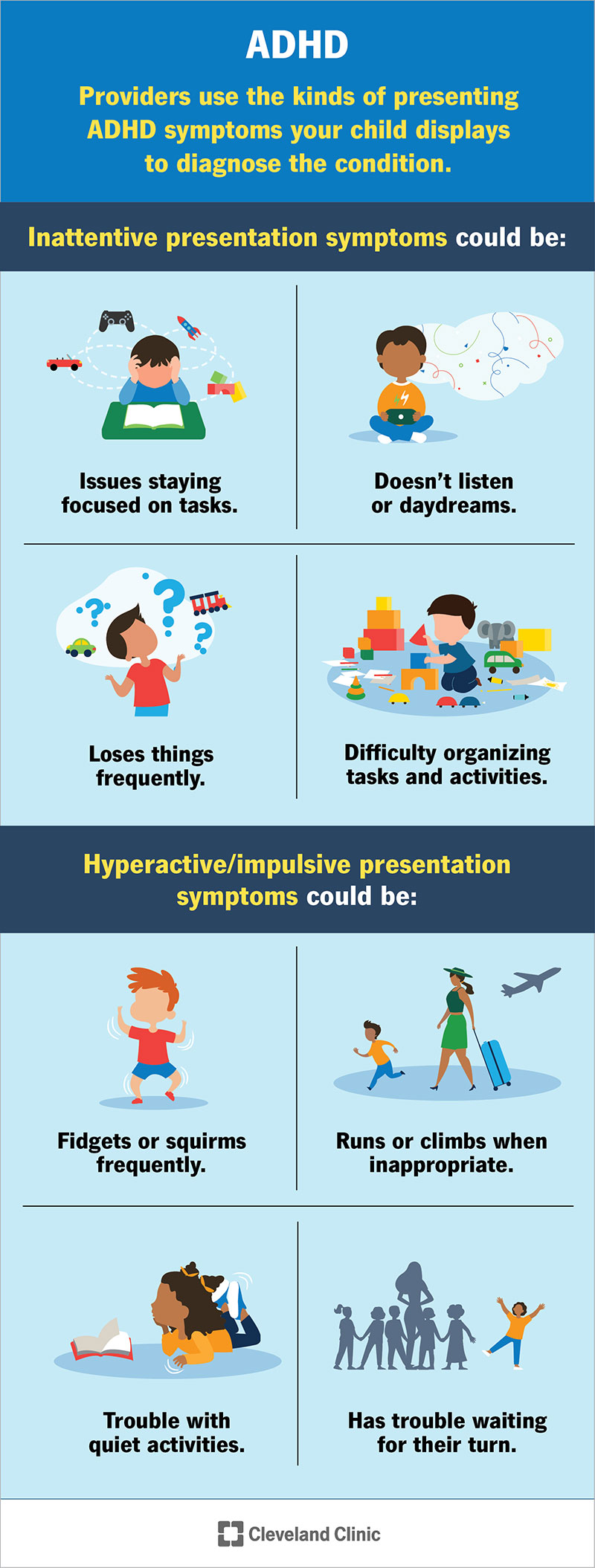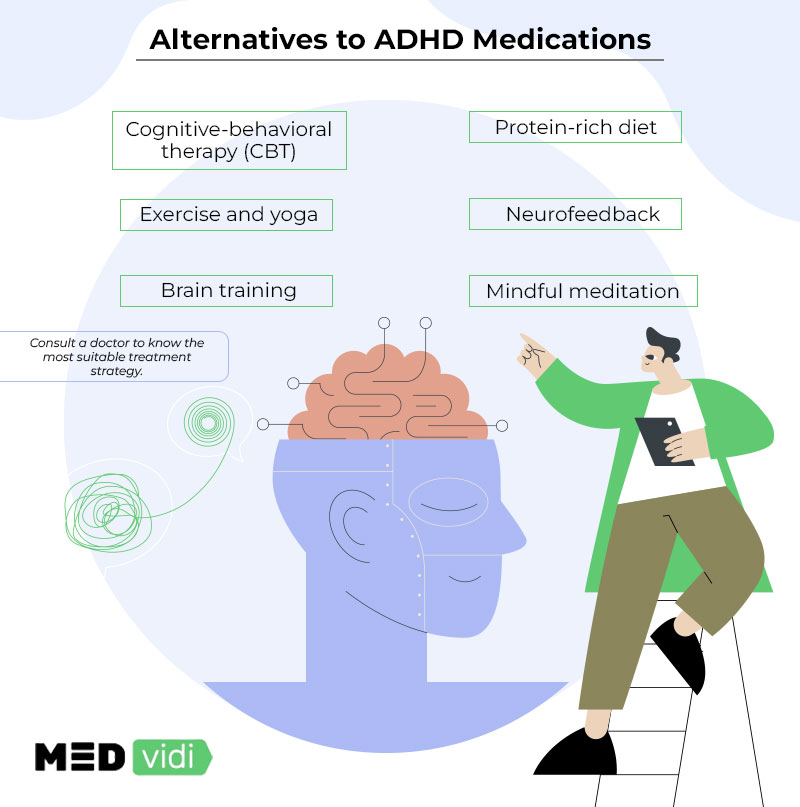Telehealth Psychiatrist Appointments for Confidential Mental Health Support
Telehealth Psychiatrist Appointments for Confidential Mental Health Support
Blog Article
Discovering Effective ADHD Treatment Options for All Ages
The complexities of Interest Deficit Hyperactivity Disorder (ADHD) existing one-of-a-kind difficulties throughout different age groups, necessitating a comprehensive exploration of effective treatment choices. A mix of behavioral therapies, pharmacological interventions, and lifestyle adjustments has actually shown promise in dealing with the varied needs of people with ADHD.
Understanding ADHD and Its Impact
Attention-Deficit/Hyperactivity Problem (ADHD) is a neurodevelopmental problem characterized by consistent patterns of inattention, hyperactivity, and impulsivity that can significantly affect various facets of a person's life. It typically materializes in childhood years, although signs and symptoms can linger right into the adult years. The core signs and symptoms of ADHD can interrupt academic efficiency, impede social interactions, and make complex work ventures.
Individuals with ADHD often fight with maintaining focus on tasks, arranging activities, and following up on guidelines, which can lead to academic underachievement (Depression Treatment). In social contexts, impulsivity may result in difficulties in creating and maintaining connections, as individuals may disrupt discussions or make rash choices without taking into consideration repercussions
The irregularity in symptom presentation implies that ADHD can influence people in a different way, requiring an individualized technique to management. Comprehensive awareness of ADHD's nature and implications lays the foundation for discovering suitable treatment choices tailored to each individual's requirements.
Behavioral Therapies for ADHD
Many behavioral therapies have actually been developed to effectively resolve the obstacles related to ADHD, concentrating on changing specific habits and cultivating necessary skills. Among the most recognized strategies are cognitive-behavioral treatment (CBT), parent training, and social abilities training.
CBT assists individuals identify and alter negative idea patterns and actions, promoting a more favorable overview and boosted self-regulation. This therapy usually consists of practical methods for handling impulsivity and improving organization. Moms and dad training programs encourage caregivers by equipping them with methods to enhance favorable actions and established constant limits, which can be particularly valuable for kids with ADHD.
Social skills training is an additional essential element, teaching individuals with ADHD how to engage effectively with peers - Depression Treatment. This strategy usually entails role-playing and responses to improve interaction, teamwork, and problem resolution skills
Including these behavior modifications into a thorough therapy plan can dramatically improve functioning and lifestyle for individuals with ADHD. Inevitably, the performance of these therapies depends on tailored methods that consider the special requirements of everyone, thereby cultivating durability and flexibility in daily life.
Medication Options Available
For numerous individuals with ADHD, drug can play a considerable role in handling signs and boosting general performance. Both primary groups of medicines suggested for ADHD are stimulants and non-stimulants.
Energizers, such as methylphenidate and amphetamine-based drugs, are one of the most generally utilized therapies. These medicines work by raising the levels of natural chemicals, specifically dopamine and norepinephrine, in the brain, which aids improve attention and minimize impulsivity and hyperactivity. They often generate quick results, making them a preferred choice for several individuals.

It is vital for healthcare suppliers to conduct a comprehensive assessment to figure out the most suitable drug based on individual demands, case useful source history, and possible negative effects. Regular follow-up and monitoring are likewise vital to ensure the performance of the picked therapy and to make any type of needed adjustments.
Way Of Life Adjustments to Take Into Consideration
Taking care of ADHD successfully expands past medication, as way of living adjustments can considerably enhance total well-being and sign control. Incorporating organized routines is important; constant schedules help individuals with ADHD best counselors near me handle their time successfully and lower sensations of overwhelm.
Normal exercise is one more crucial component. Workout not just helps to boost focus however likewise enhances state of mind and lowers anxiety levels. Activities such as yoga or team sporting activities can be specifically advantageous, promoting both fitness and social interaction.
Nourishment also plays a pivotal function. Depression Treatment. A well balanced diet rich in omega-3 fatty acids, entire grains, and lean healthy proteins can add to improved emphasis and cognitive function. Restricting sugar and processed foods is suggested, as these can aggravate hyperactivity and impulsivity
Sleep hygiene is essential for managing ADHD signs and symptoms. Establishing a routine sleep timetable and developing a relaxed environment can boost sleep high quality, resulting in far better attention and psychological regulation.
Different and Alternative Methods
Alternate and all natural techniques to ADHD therapy provide a diverse series of alternatives that enhance conventional methods. These methods typically concentrate on way of life adjustments, nutritional treatments, and healing practices that intend to boost general wellness while attending to ADHD symptoms.

Mindfulness and behavioral therapies are likewise gaining grip as all natural treatments. Practices such as yoga exercise, meditation, and cognitive-behavioral treatment can cultivate self-regulation and improve attention. These methods sustain emotional durability, which is especially valuable for people with ADHD.
Natural supplements, such as ginkgo biloba and ginseng, are in some cases checked out; however, it is vital to useful reference speak with health care professionals before including these right into therapy strategies. While alternative and alternative techniques can offer beneficial support, they should preferably be utilized combined with evidence-based therapies to attain optimum results for managing ADHD across any ages.
Conclusion
In summary, reliable ADHD therapy demands a thorough method that consists of behavior treatments, medicine, lifestyle adjustments, and holistic techniques. Tailored interventions can considerably enhance individuals' working and lifestyle, while appropriate drug makes certain ideal sign monitoring. Furthermore, adopting structured routines, involving in regular physical task, and exercising mindfulness can enhance emotional regulation and focus. This diverse method highlights the relevance of customized treatment in resolving the varied requirements of individuals with ADHD across every age groups.
Report this page